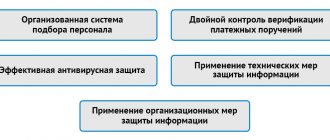Judicial power is one of the forms of expression of the will of the state, implemented through the mechanism of justice. Despite the fact that it is aimed at protecting and restoring the legal rights, freedoms and interests of subjects of legal relations, in some situations the court itself needs legal protection. One of the most dangerous acts aimed at harming the authority, honor and dignity of the judiciary is contempt of court.
Next, we will consider in which normative legal acts contempt of court is indicated as a crime, as well as the consequences that occur with this offense.
Legislative support
According to Article 297 of the Criminal Code of the Russian Federation (hereinafter referred to as the Criminal Code of the Russian Federation), insulting participants in court proceedings, a judge, a juror and other persons is contempt of court, for which the perpetrator is subject to criminal liability.
The emergence of such a norm provided certain guarantees for the protection of the interests of justice, because its effectiveness depends not only on the implementation of the norms by the court itself, but also on how other entities interact with it.
Contempt of court creates an unfavorable environment that interferes with the administration of justice and does not allow the circumstances to be examined fully and comprehensively. In addition, insulting participants in legal proceedings is seen as targeted interference; this is a unique way of putting pressure on the judge to make it difficult to make a decision on a case or to induce him to change his position.
What is contempt of court?
Insult is usually understood as derogation of the honor and dignity of another person, expressed in an indecent form. This is an evaluative formulation that provides grounds for broadly interpreting the category in relation to each specific case, taking into account all the circumstances.
As a result of judicial interpretation and clarification by courts of various instances, behavior is considered from the perspective of the possibility of humiliating, causing moral suffering, and having a negative impact on the course of legal proceedings.
As already mentioned, insult manifests itself in the humiliation and indecent form of its expression. Humiliation is understood as the public announcement of the negative qualities (characteristics) of a person, undermining his authority and respect from others.
You can humiliate someone both in personal communication and in the presence of other people. Written, oral forms, humiliation through gestures and facial expressions are allowed. Of particular importance is the indecency of the form, expressed in the use of cynical, obscene, rude gestures and expressions.
Thus, contempt of court can be expressed in a variety of forms, but all of them are assessed from the position of morality and ethics of society, the inherent level of behavior and culture.
Corpus delicti
Analyzing the content of Art. 297 of the Criminal Code with comments to it, the direct object of contempt of court is the authority of the court and the correctness of legal proceedings, and the dignity of the participants (parties) in the proceedings is an additional object. Since the object of a crime always reflects a public danger, it is worth noting that contempt of court negatively affects the implementation of the principle of equality of rights in relation to evidence, diminishes the authority of the court, and has a disorganizing effect.
The objective side of Art. 297 of the Criminal Code of the Russian Federation consists of insulting the participants in the process specified in the article. Please note that due to the special status of participants in legal proceedings, some insults are regarded differently if they were applied to other persons (for example, the words “moron”, “idiot”, etc.).
It has also been established by judicial practice that if during the same process various participants were repeatedly subjected to insults over a short period of time, then this is qualified as one crime.
However, if the temporary gaps were long, for example, when the trial of the case was postponed and postponed for several days, then such actions are regarded as three independent acts (Resolution of the Presidium of the Armed Forces of the Russian Federation dated May 21, 2008 No. 120-P08).
Note. When determining whether a person’s behavior is offensive to the court, the latter must correctly distinguish them from other actions also related to contempt of court, but not aimed at insulting the participants in the process (failure to appear when summoned, etc.). In such cases, the guilty person is brought to administrative responsibility in accordance with Article 5.61 of the Code of Administrative Offenses (hereinafter referred to as the Code of Administrative Offenses of the Russian Federation) in the form of a fine for contempt of court.
The subject is characterized by the following characteristics:
- Sanity is the ability of a person to realize the actual nature of the actions being carried out, to assess the social danger of the consequences;
- reaching the age of 16 years.
The subjective side is expressed in the presence of exceptional direct intent, when the guilty person is aware of the social danger of his actions, wants to commit them and achieve a negative result.
Qualifying features
The qualifying feature of Article 297 of the Criminal Code of the Russian Federation is insult to a judge, juror or other person involved in the administration of justice, that is, officials directly involved in legal proceedings. Verdict under Part 2 of Art. 297 of the Criminal Code of the Russian Federation is a more stringent measure of criminal liability.
Jurisdiction
By virtue of direct instructions of the law, the crime provided for in Art. 297 of the Criminal Code of the Russian Federation, has jurisdiction over district courts of general jurisdiction. Claims are filed in accordance with the general procedure.
Acceptable types of requests
In practice, there are other types of appeals. They are not prohibited because they are specific and concise. How to address a judge in court in other ways? The phrases “Mr. Judge”, “Comrade Judge”, “High Court” are suitable. You need to make a speech using the “you” form.
You should not interrupt the judge when he is saying something. You can speak out after he finishes doing this. You should speak clearly and distinctly. There is no need to raise your voice or use indecent language. It is not permissible to insult any of the participants in the hearing. A person is responsible for this. It is necessary to take into account that the form of appeal affects further relations between all participants in the case.
Difficulties of proof
Unfortunately, in the practice of courts when passing sentences under Article 297 of the Criminal Code of the Russian Federation, many problems arise related to the evidence base. Often, a judge, faced with insults from participants in the process, deliberately ignores and does not initiate proceedings, since this requires a considerable amount of time and leads to a delay in the consideration of the case.
Also, the function of ensuring order is assigned to bailiffs, but often they do not have the necessary level of legal culture and do not know what to do in such situations due to insufficient methodological training.
Another difficulty is the involvement of linguist experts who can conduct a high-quality linguistic examination and determine whether an insult occurred. A special role is played by the lack of necessary specialists in many expert centers, and even if they are on staff, they rarely have the necessary competence and qualifications and are not able to objectively evaluate statements.
It is also possible to prove the fact of insult using the protocol of a court hearing, however, even here the legislative position is not entirely clear. According to the definition of the Judicial Collegium for Criminal Cases, the use of profanity in procedural documents, which includes the minutes of the court hearing, is unacceptable.
The way out of this situation is to replace it with words in an acceptable form, as well as replace individual letters of a part of a word with ellipses to convey the general meaning of the statement.
It is obvious that in such a crime the ethical role of the judge is extremely high. According to the European Court of Human Rights, the activity of a judge is subject to the principle of restraint, which does not allow him to fully respond to what is happening. In addition, it is necessary to find out to what extent the insults interfered with the judicial process and prevented the judge from making a fair and independent decision.
Employee behavior
It is advisable to familiarize yourself with the rules of conduct at the meeting in advance. For this purpose, there is a Code of Ethics, which sets out the rules of employee conduct. Do employees have any advantages? They do not have any privileges, so they should behave calmly, kindly, politely
It is important to be tolerant of all participants in the court hearing.
The employee does not have the right to speak. Actions that discriminate against people based on gender, age, race, nationality, citizenship, or material wealth are not permitted. It is also prohibited to humiliate a person, his desires and interests. Therefore, any phrases must be expressed in a cultural and restrained form.
Rudeness, arrogance, and bias are prohibited. Employees do not have the right to threaten, insult, or humiliate colleagues or participants. Illegal behavior, such as fighting, is unacceptable.
Contempt of court in other normative legal acts
In addition to the Code of Criminal Procedure of the Russian Federation, contempt of court is an offense according to the norms of the Arbitration Procedure Code of the Russian Federation, the Code of Civil Procedure and the Code of Administrative Offenses of the Russian Federation.
As already stated above, insult in accordance with Art. 5.61 of the Code of Administrative Offenses of the Russian Federation is punishable by a fine, and according to Art. 17.3 of the Code of Administrative Offenses of the Russian Federation, contempt of court and improper performance of duties, expressed in failure to comply with the order of a judge or bailiff to ensure the established procedure for the activities of courts, also entails a fine or administrative arrest.
Here it is worth paying attention to the meaning of Art. 17.3, since it includes not only insult as a factor that violates the established procedure of legal proceedings, but also other illegal actions. For example, under this article a lawyer is held accountable for contempt of court.
In the arbitration process, liability in the form of a court fine for disrespect is established by Part 5 of Art. 119 of the Arbitration Procedure Code of the Russian Federation, if in a particular case a person is not subject to criminal liability.
In civil proceedings in Art. 159 of the Code of Civil Procedure of the Russian Federation reveals in sufficient detail the procedure for implementing measures applied to violators of the order: first a warning is announced, in case of repeated violation, removal from the courtroom is allowed on the basis of a ruling, then the guilty person is subject to a fine.
What documents should I take?
At the entrance to the court there are usually guards or a bailiff who check documents. If this is an employee, then he has an official ID. Otherwise, a passport is provided.
If the call was made on the basis of a summons, then it must be provided. It indicates the room number where the meeting will take place, where you need to go to register. This is done before the process begins.
The attendance of all participants is required. Anyone can attend such an event, even if there was no invitation. Law students as well as interested citizens may attend the meeting.
Filming of the event is prohibited. But you can make an audio recording. Russian legislation prohibits photography and video recording. It is allowed to be carried out with the consent of the court. But it is allowed to record everything with a voice recorder and audio devices.
Arbitrage practice
Claims for contempt of court constitute an extremely small percentage of the total number of cases considered by the courts. The most “bright” cases are:
- Resolution of the Ulagansky District Court (Altai Republic) dated December 25, 2014 No. 5-711/2014 (link to this act),
- Ruling of the Supreme Court of the Russian Federation dated September 14, 2011 No. 16-011-45 (link),
- Appeal ruling of the Supreme Court of the Russian Federation dated April 18, 2013 No. 43-APU13-1 (another link to the court decision).
In these cases, the courts concluded that illegal actions against other persons who do not have the status of a judge also violate the procedure established by law for the administration of justice, create an atmosphere of nervousness in the courtroom and undermine the authority of the judge.
Practice also indicates that insults expressed when using video conferencing systems are also taken into account , that is, it does not matter in what form the disrespect was expressed.








